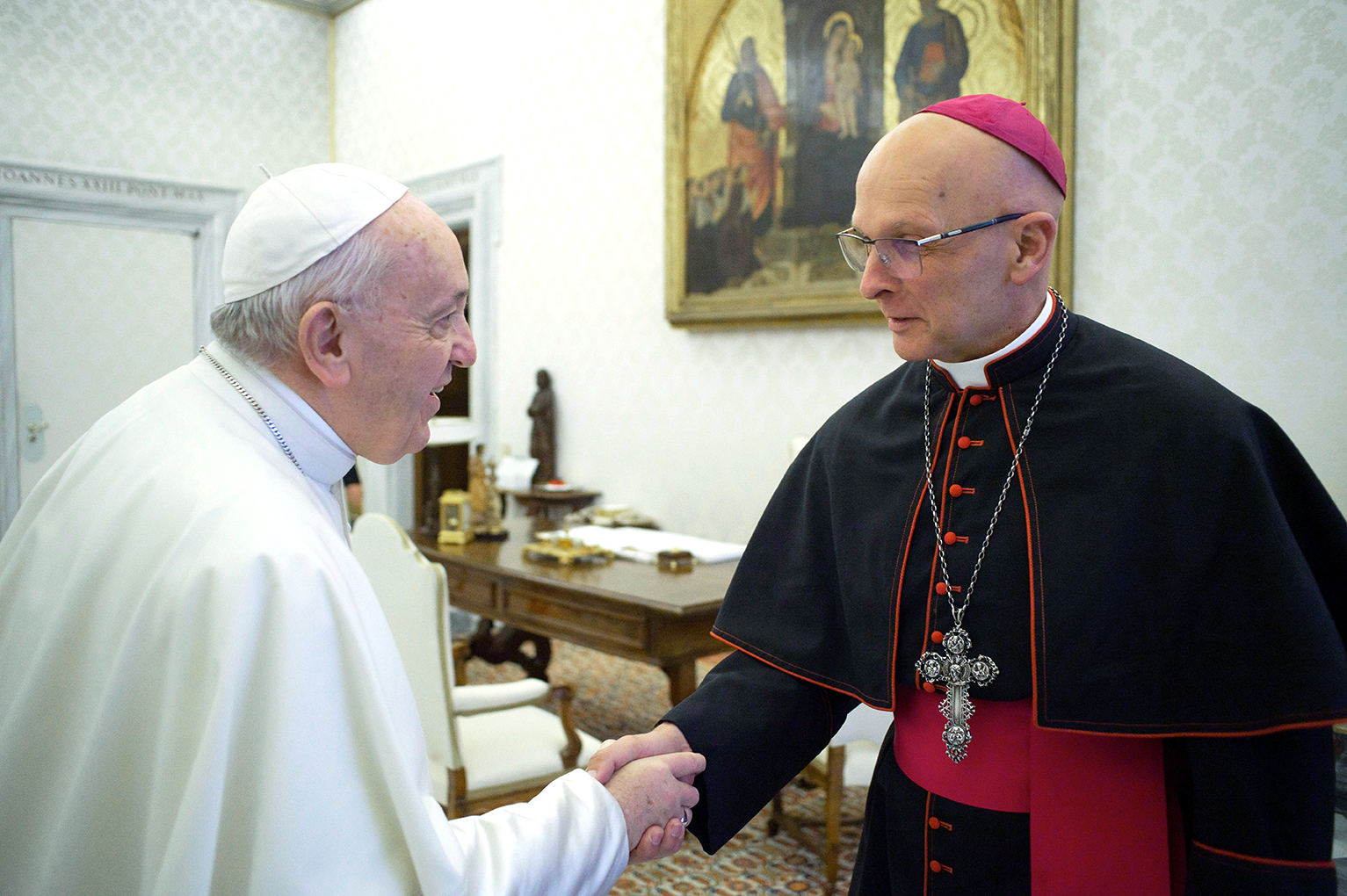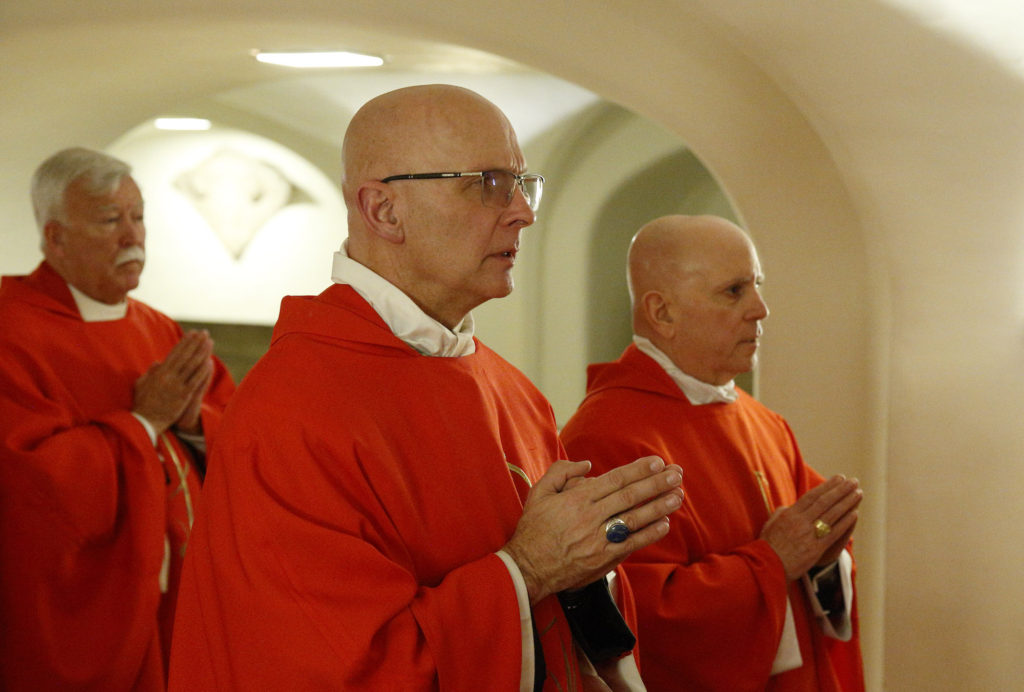
Gallup, N.M. (CNA) — After visiting with Pope Francis for two and a half hours during his region’s “ad limina” visit, Bishop James S. Wall of Gallup, New Mexico told CNA that he was encouraged by the Holy Father’s passion for the pro-life movement, his love for the vulnerable in society, and his willingness to discuss anything.
“The Holy Father just (said), ‘What would you want to talk about?’” Bishop Wall told CNA.
“So, I saw an opportunity, and it was kind of funny. I said, ‘Holy Father, we’re pro-life.’ And he joked, and he goes, ‘Well, so is the Holy Father.’”
Bishop Wall, who used to be a priest of the Diocese of Phoenix before his episcopal appointment, said he then told Pope Francis that he wanted to talk about how much of the Church, and society at large, has still rejected the message of “Humanae Vitae,” St. Paul VI’s 1968 encyclical reaffirming the Church’s teaching on sexuality and against contraception, more than 50 years after it was written.
The rejection of Humanae Vitae’s teachings has created a “vocational crisis,” Bishop Wall added, because parents are not learning to be generous with God, and therefore their children are not learning to be generous with God and to trust Him with His plan for their lives.
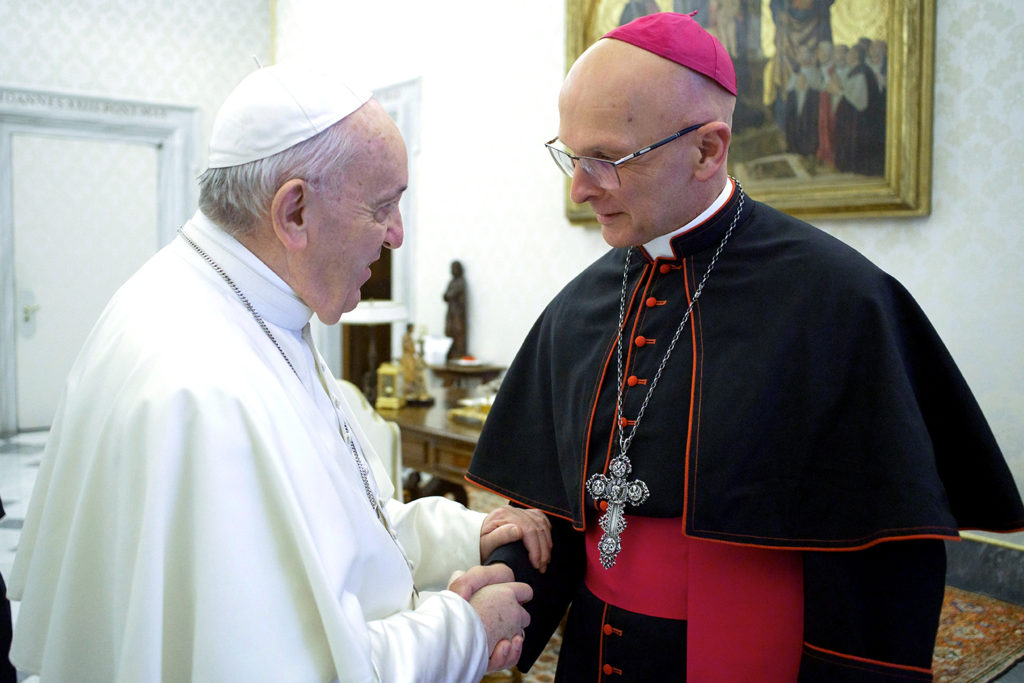

Bishop Wall said Pope Francis responded that he especially sees this crisis in the disappearance of people with disabilities from society.
“(Pope Francis) said, ‘Yes, the question about why is it in our society that we see fewer and fewer people with disabilities? … Because we do tests of children in the womb, and if we see that they have a disability, then we abort them. This is a great evil.’”
People with disabilities are created in the image and likeness of God, as are all people, and they have “a unique role to play in society, because they help us to love, and they teach us about love,” the pope told the bishops.
“It’s a beautiful line from the Holy Father,” Bishop Wall told CNA.
The bishops of the U.S. Conference of Catholic Bishops’ Region XIII met with Pope Francis Feb. 10. The region includes the bishops of Arizona, Utah, Colorado, Wyoming and New Mexico.
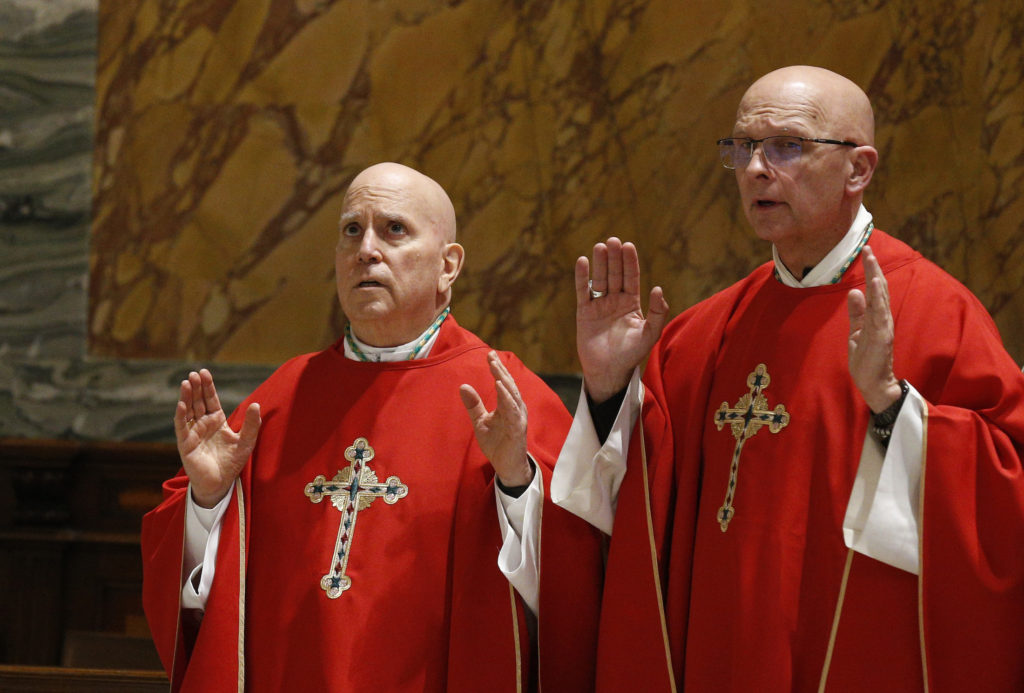

Bishop Wall said he discussed with Pope Francis that the Native American people in his diocese still value life — they care for children with Down syndrome, and they have great respect for their grandparents and elders.
Pope Francis then spoke about the importance of respecting life “from conception until natural death, the littlest to the oldest” and the need to protect the most vulnerable in society.
“It was awesome to see the Holy Father just really be so passionate about life, and passionate about life of people with disability. I thought that was beautiful,” Bishop Wall said.
One of the problems with the way society talks about life is that they use the term “quality of life,” Bishop Wall noted.
“That’s such a loaded term,” he said. “My quality of life could be different from your quality of life, but that doesn’t mean that my life is better or worth more than your life. Every life is worth it and worth living.”
“And whether somebody has a disability, whether somebody’s old and young, whatever the case is, or if somebody makes a lot of money or doesn’t, the quality of life is the same for everyone, (because) our quality of life is we’re all created in the image and likeness of God.”
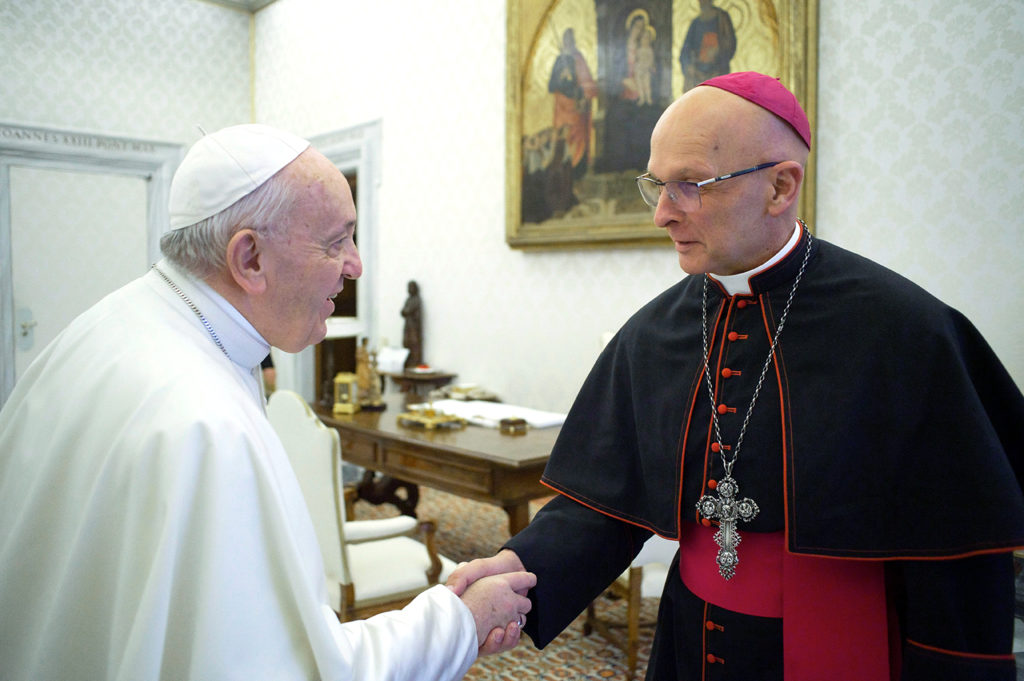

Priests should be preaching the truth about Church teaching regarding contraception and human life in order to foster a deeper culture of life among Catholics, Bishop Wall added.
“That’s something that we shouldn’t shy away from preaching — preaching the truth of ‘Humanae Vitae,’ preaching the truth of the Theology of the Body, preaching the truth of what all the Church teaches when we talk about the sacredness of life,” he said.
“And we need to be able to name it for what it is,” he added. “So, when we talk about abortion, or we talk about contraception, and we talk about embryonic stem cell research, euthanasia, physician-assisted suicide — we call it for what it is. We pray for an end to these intrinsic evils in our society.”
Parishes should also give couples who are living according to Church teaching a chance to share their testimonies, Bishop Wall said, in order to counter the perception that everyone is using contraception, and that it must be okay because it is so widely used.
Bishop Wall said he would also encourage Catholics to read ‘Humanae Vitae.’
Bishop Wall added that after his region’s “ad limina” visit, he felt very close to the Holy Father and appreciated his openness to discuss anything.
“We didn’t send him a list of questions and have him get prepared for it. He wanted to talk about things. So, if you asked him a question, he would sit there, and he would really think about it. You could tell he was very thoughtful and very prayerful … and I found that very inspiring. I took away a great love for the Church and a real closeness to him.”
— By Mary Farrow, Catholic News Agency.



